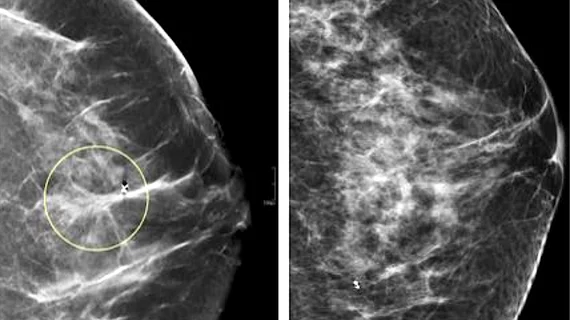Breast density website reminds patients to dig deeper on internet searches
A website offering information about dense breasts, Dense Breast Info, wants women to be aware of their services, even though they aren’t always the first result in an internet search about breast density.
With several states requiring radiologists to inform women if their mammograms show they have dense breasts, many women are wondering what it really means to have dense breasts. What does it mean? Does it put them at greater risk for breast cancer? How can physicians tell women have dense breasts?
Many of those women will turn to the internet for their answers. The Society of Breast Imaging (SBI) released a list of websites women can look up for useful and reliable information about breast density.
Dense Breast Info advisor Jennifer Harvey, MD, vetted seven websites through her position as a board of directors member at the SBI and provided commentary to help women navigate what each of them offers. Different websites could serve different purposes for different women.
Harvey designates one site that she works on, Dense Breast Info, as the “most up-to-date,” “easy to navigate” and “comprehensive” site for women to consult when the have questions about breast density. She touted the site’s database of scientific, policy and technology information, including an information checklist patients can bring with them to doctor appointments.
Harvey praised the American College of Radiology and the American Cancer Society for their easy-to-read PDF info sheets on breast density. And Harvey said other websites, such as BreastCancer.org, Are You Dense and Breast Density Info fill in certain information gaps while leaving others empty. Curious patients could also check out info at the Mayo Clinic and Memorial Sloan Kettering websites.
On the other hand, Harvey designates one of the most well-known breast health websites, Komen, as “not recommended.” Their section on breast density is sparse and doesn’t link to any other useful information, according to Harvey.
Even after consulting various websites, Harvey said women with dense breasts have to decide for themselves whether or not extra screening beyond mammograms is the best option. She cited advise from her website:
“You need to consider your own tolerance for false positives compared to the potential benefit of improved cancer detection when deciding whether or not to have additional screening,” the Dense Breast Info counsels.

